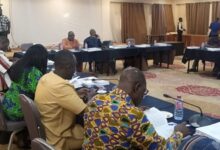Power has come to be associated with the modern economy due to its importance for domestic, industrial and other commercial purposes.
Therefore, unavailability of power anywhere has the potential to bring economic activities to a halt.
This is why we are concerned with the directive of the Chamber of Independent Power Producers (IPPs) to its members to cut supply to the national grid from tomorrow.
Members of the Chamber, comprising SunonAsogli, Cenpower, Karpowership, AKSA, Twin City Energy and CENIT, in an email to its members, said, “Further to our planned industrial action on July 1, 2023, we would like each IPP to nominate nothing (zero nominations) and not declare an availability to the System Operator, beginning July 1 to July 8, 2023”.
According to the Chamber, its directive is based on the fact that as of January 2021, the six enterprises were collectively owed approximately $1.73 billion by the government, which they made the attempt to collect in May that year.
We stand to be corrected though, but if what the Chamber claims is the case, then we can guess that the government’s indebtedness to the IPPs is more now and the implications for the operations of these entities are dire.
The IPPs are said to control 47 per cent of the country’s total power generation mix and contribute 67 per cent of the country’s thermal power.
Thermal generation is said to represent 66 per cent of the country’s mix, with hydro accounting for 33 per cent and solar one per cent.
This means that if the IPPs carry through their directive, their non-supply of the 67 per cent thermal alone takes away 44.22 per cent the country’s power generation, which is a lot in terms of demand and supply.
This means the situation now portends power rationing or dumsor, a situation the IPPs maintain they cannot avoid.
This is because even though they wish they give the best of services, debt owed them hinders their access to working capital, as the situation prevents them from financing crucial inputs such as chemicals for water treatment in thermal generators and other supplies, many of which are priced in foreign currency, primarily the US dollar.
They say what is equally disturbing to them is that they are not able to convince creditors, contractors, and other essential stakeholders to delay payments meant for them and maintain operations beyond June 30, which is today.
The IPPs and the government were expected to meet during the week for an agreement for a 30-per cent interim payment of the arrears, but the IPPs argue that without receiving full payment by the close of today, they will be unable to sustain the national grid.
Meanwhile, today is the deadline to shut down but the IPPs have not been met by the government for a favourable response.
Today is too young for us to lose hope over any action to avert the looming dumsor.
Thus, we appeal to the government to do all it can to calm nerves and the situation in order to not worsen the plight of Ghanaians with a dumsor.




